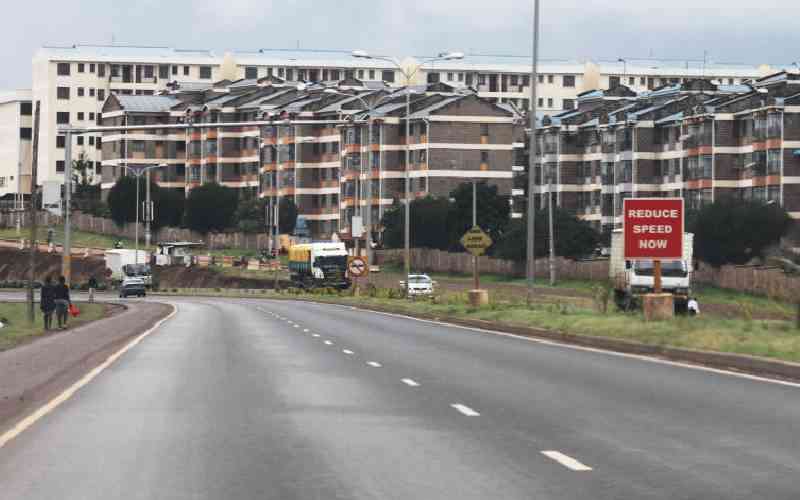
There are many renters paying billions to people they have never met in deposits each time they move.
But what happens if - despite your best efforts - they decide you can't have it back at the end of the tenancy?
According to housing laws, most private landlords are required to place all deposits held in a registered tenancy scheme and also give you written proof of this.
But despite these rules, thousands of people each year find themselves turning to charities such as Citizens Advice and Shelter in search of help, after losing their deposit for what they claim was no fault of their own.
To give an example: in 2016, four in 10 students had some or all of their deposits kept by landlords to the tune of £32 million, according to StudentTenant.com.
Across the UK, around 29% of renters lose their deposits every year, a poll by Hillarys found - at an average of £825 each. Collectively, that's over £1 billion.
In most cases, landlords will cite professional cleaning, damage to fittings, excessive wear and tear and unpaid bills as reasons for holding back deposits - but sometimes you may not necessarily be in the wrong.
If you're about to step into the world of renting, or you are already a tenant, there are procedures you can follow to boost your chances of getting a full deposit back. Here's our guide in full.
1. Check the inventory small print - take pictures
Just one in five tenants sign photo inventories before moving in, meaning in many cases there's rarely any real evidence of whether the damage existed before they signed the contract, or not.
Mark Scott, legal director at law firm Blake Morgan, explains: "Since 2007 a landlord granting an assured shorthold tenancy must protect a tenants deposit in one of the approved tenancy deposit schemes.
"This has helped considerably, but disputes still arise regarding the release of a deposit at the end of a tenancy and usually regarding cleaning costs or a dispute over fair wear and tear to the rented property."
Mark adds that tenants should go through every detail of the inventory before moving in, taking into account what furniture and fittings exist, and the condition of the items.
Stay informed. Subscribe to our newsletter
"Before and after photographs are a good idea. Both parties should try and be present when the tenancy finishes and the agent carries out the checkout process," he adds.
Danielle Cullen, managing director at StudentTenant.com, says: "Without having proof of the condition of the property before moving in, people are risking losing deposits when they move out as it’s their word against the landlord.
"Both parties must protect themselves and the property and inventories are the single most important thing. They both need to agree and sign a full inventory so, if for any reason there are any problems, there’s physical evidence to back up claims.
"If there isn't an inventory available, tenants should request an inventory check or take photos the day they get the keys and send them to the agents. At least then they have some visual proof of the condition of the property at the end of the tenancy."
2. Raise any concerns as soon as possible
If you experience an issue with your home during your tenancy, don't wait until the end of your agreement to flag it - as you could find yourself paying for it.
Any damage to fixtures, fittings or items that came with the property, that aren't your fault, such as appliance malfunctions, should be reported and a record kept.
Take photos (with a time stamp) where necessary. Email your landlord, and keep a copy of that email.
If you're renting through an agent, ask them to raise the concerns with the landlord too, and keep some form of evidence of the conversation, just in case you later need to refer to it.
When it comes to minor issues such as the kettle on the inventory running its course, you'll also find notifying your landlord can actually help the situation - as they'll then be able to replace it.
3. Is your deposit protected?
It's important to know who does and doesn't need to use a deposit scheme. If your tenancy agreement is an AST (Assured Shorthold Tenancy) then your landlord legally has to use a deposit scheme.
That applies to the vast majority of tenancies in the UK. But, if you rent as a lodger and live with the owner of the property, they aren't required to.
SpareRoom director Matt Hutchinson explains: "Your landlord must, by law, tell you which scheme they’re using, how to claim your deposit back, what you need to do if there’s a dispute and what the landlord is entitled to make deductions for.
"They have 30 days to do so. If they don’t, they can be ordered to pay you up to three times the deposit."
In England and Wales your deposit can be registered with Deposit Protection Service, MyDeposits and Tenancy Deposit Scheme. There are separate TDP schemes in Scotland and Northern Ireland.
As a rule, your landlord must use a TDP scheme, even if your deposit is paid by someone else, such as a rent deposit scheme or your parents.
In the event of a dispute at the end of your tenancy, you can get in touch with your scheme's alternative dispute resolution (ADR) service which is a complaints body that helps to settle disagreements.
They will gather information from you and the landlord before deciding on the deposit amount which should be returned. Both you and your landlord must accept the decision made by the ADR service.
If your landlord hasn’t used a TDP scheme when they should have done, you can take them to court to claim compensation instead. It’s best to wait until your tenancy has ended to do this, so you don’t put yourself at risk of being evicted.
7. You may be entitled to THREE times your deposit
The law is very strict with regards to landlords who don’t comply with their legal obligations regarding tenancy deposits.
If a landlord refuses or fails to put the money in the scheme within 30-days, they could be subject to a financial penalty.
"The main implications of a landlord failing to register the deposit and/or provide certain information relating to the deposit are a) a financial penalty and b) a bar to serving a section 21 notice to end the tenancy unless the deposit is returned to the tenant," explains Nicole Rogers, Solicitor at DAS Law.
To put it into perspective, the financial penalty can be anything from one to three times the amount of the deposit.
4. Money CAN'T be deducted for general wear and tear
As with anything, it pays to know your rights. One of the key things to note is that your landlord cannot deduct money from your deposit for general wear and tear.
Citizens Advice housing expert Martin Coates explains: "When you leave a rented property, money should only be deducted from a deposit if the property has been damaged, something has been broken or if you have fallen behind on rent. Money can’t be taken off for general wear and tear.
"A landlord cannot request money if something is simply worn out."
This includes minor signs of use such as worn carpets, minor scrapes and scuffs on the walls and faded curtains.
"If your landlord tries to charge you for this, you can contact your tenancy deposit protection (TDP) scheme who will put you in touch with their alternative dispute resolution (ADR) service," Coates adds.
5. Flat hunting? Don't just hand over money
If you're currently house of flat hunting, experts say you should go with your gut when it comes to handing over any initial money.
"If something feels odd, or the room seems too perfect and it leaves you saying ‘what’s the catch?’ chances are that’s the case," explains SpareRoom's Hutchinson.
"You should definitely avoid handing over money for any property you haven’t had a chance to visit, even if the landlord gives you seemingly legitimate reasons for why you can’t see it.
"The first red flag should be if anything seems too good to be true. You should also be wary if you’re ever asked to pay money up front before seeing the property.
"If you have any doubts about a property you see advertised, give the website a call or email them to ask them to look at it for you," he adds
If you've viewed the property but still have doubts, you can ask to speak with the previous tenants about any issues they had with the property - your letting agent should be well equipped to advise you on this too.
6. Fix any damages before you move out
As a tenant, you should be aware that you have a general legal obligation to return the property as you found it, although some allowances may be made for reasonable wear and tear.
Any damage beyond this, such as broken appliances that don't belong to you, could jeopardise any returns of a full deposit, so it's worth fixing it before you move out (you may find this works out cheaper too, especially if it's a house share).
"In the event that the landlord/agent notice problems with which the tenant agrees, the tenant is able to offer to rectify the issue before the landlord incurs costs which he may look to hold the tenant liable for," explains DAS Law's Rogers.
"The tenant may be able to resolve the issue themselves or at a cheaper cost than what the landlord may incur.
"This method may assist the tenant in maximising the chances of receiving their full deposit back," she adds.
8. Hold on to ALL documents
It’s really important to keep track of any documents, information and correspondence around your tenancy during your lease and until your deposit is returned.
Here's a full list of what StudentTenant suggest you should keep hold of until the day your deposit is returned:
Tenancy Agreement
Check-in inventory - make sure you have copies signed by both parties too.
Check-in/Check-out photos
Keep records of any correspondence with your landlord/agent - if you made phone calls, make notes of the date/time and what was discussed. StudentTenant suggest following up any phone calls with an email too.
9. Play nice!
Ultimately, one of the safest ways to make sure your deposit is returned is by looking after the property.
David Cox, chief executive of the UK's professional body for letting agents, ARLA Propertymark, explains: "Rented properties must be returned in the condition they were given in the beginning.
"Should the property be returned in another state, deductions can be made in order to help put the property back in order? There are a number of appropriate reasons as to why a landlord or letting agents may withhold a deposit."
To prevent this from happening, Cox says tenants should ensure that there are no outstanding bills or rent when they move out and damages are all fixed.
During your tenancy, looking after the garden (or keeping it in the state you received it) will also help, as will general maintenance, such as opening windows to ensure ventilation - this could otherwise lead to costly damp repairs.
 The Standard Group Plc is a
multi-media organization with investments in media platforms spanning newspaper
print operations, television, radio broadcasting, digital and online services. The
Standard Group is recognized as a leading multi-media house in Kenya with a key
influence in matters of national and international interest.
The Standard Group Plc is a
multi-media organization with investments in media platforms spanning newspaper
print operations, television, radio broadcasting, digital and online services. The
Standard Group is recognized as a leading multi-media house in Kenya with a key
influence in matters of national and international interest.
 The Standard Group Plc is a
multi-media organization with investments in media platforms spanning newspaper
print operations, television, radio broadcasting, digital and online services. The
Standard Group is recognized as a leading multi-media house in Kenya with a key
influence in matters of national and international interest.
The Standard Group Plc is a
multi-media organization with investments in media platforms spanning newspaper
print operations, television, radio broadcasting, digital and online services. The
Standard Group is recognized as a leading multi-media house in Kenya with a key
influence in matters of national and international interest.









